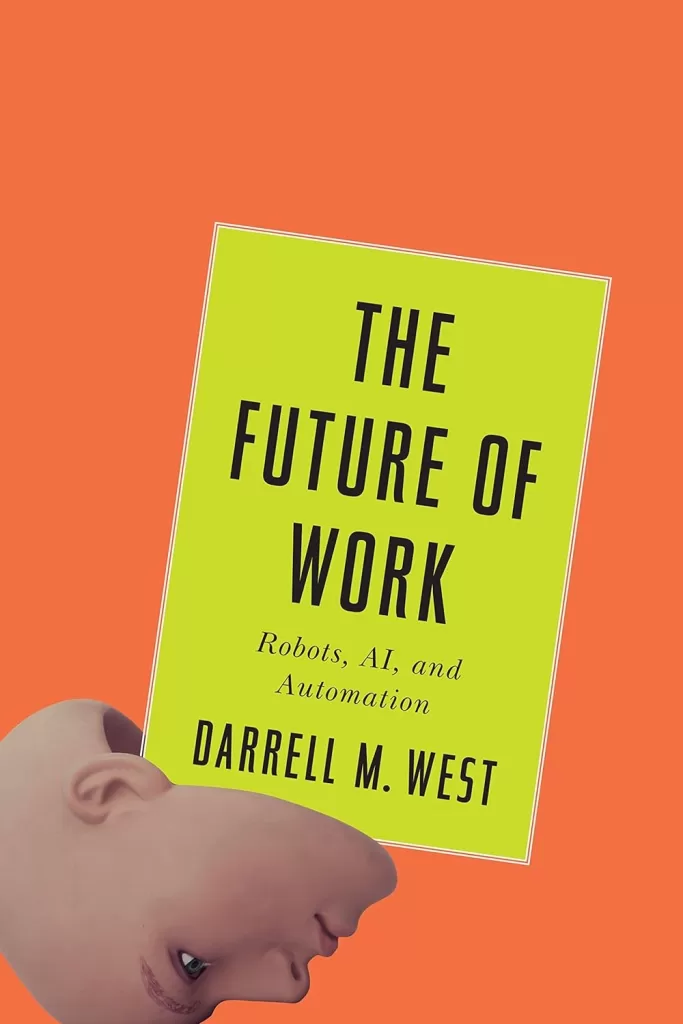Artificial Intelligence (AI) has become an integral part of our lives, transforming the way we live, work, and interact. As we look ahead to the year 2041, renowned AI expert Kai-Fu Lee presents his ten visionary predictions for the future of AI in his book, AI 2041: Ten Visions for Our Future. Let’s explore these fascinating insights into the potential impact of AI on our world.
1. AI as a Creative Collaborator
In the future, AI will not only assist us in repetitive tasks but also become our creative collaborators. With advancements in natural language processing and machine learning, AI will be able to generate original content, compose music, and even create art. This collaboration between humans and AI will unlock new levels of creativity and innovation.
2. AI-Enhanced Healthcare
AI has the potential to revolutionize healthcare by enabling more accurate diagnoses, personalized treatments, and proactive disease prevention. With AI-powered medical devices and algorithms, doctors will have access to real-time patient data, allowing for faster and more precise decision-making. This will lead to improved patient outcomes and a more efficient healthcare system.
3. AI-Driven Education
Education will undergo a transformation with the integration of AI. Personalized learning experiences, adaptive curricula, and intelligent tutoring systems will become the norm. AI will analyze individual student data, identify learning gaps, and provide targeted interventions, ensuring that every student receives the education they need to succeed.
AI has the potential to address some of the world’s most pressing challenges. From climate change to poverty alleviation, AI can be harnessed to develop innovative solutions. By leveraging AI’s predictive capabilities and data analysis, we can make more informed decisions and create a better future for all.
5. AI-Enabled Transportation
Autonomous vehicles are just the beginning. In the future, AI will transform transportation systems, making them safer, more efficient, and environmentally friendly. AI-powered traffic management systems will optimize traffic flow, reduce congestion, and minimize energy consumption. Additionally, AI will enhance logistics and delivery services, revolutionizing the way goods are transported.
6. AI and Workplace Transformation
AI will reshape the workplace, automating repetitive tasks and augmenting human capabilities. While some jobs may be displaced, new opportunities will emerge. AI will enable workers to focus on higher-value tasks that require creativity, problem-solving, and emotional intelligence. This shift will lead to a more fulfilling and productive work environment.
7. AI and Ethical Considerations
As AI becomes increasingly powerful, it is crucial to address ethical considerations. Transparency, fairness, and accountability should be at the forefront of AI development. We must ensure that AI systems are unbiased, respect privacy, and prioritize human well-being. Ethical guidelines and regulations will play a vital role in shaping the responsible use of AI.
8. AI and Global Collaboration
The future of AI requires global collaboration. By sharing knowledge, expertise, and resources, we can accelerate AI research and development. International cooperation will help address common challenges, promote diversity in AI, and ensure that the benefits of AI are accessible to all. Together, we can shape a future where AI benefits humanity as a whole.
9. AI and Personalized Experiences
AI will personalize our experiences across various domains, from entertainment to retail. With AI algorithms analyzing vast amounts of data, we will receive tailored recommendations, customized products, and immersive virtual experiences. This level of personalization will transform the way we interact with the world around us.
10. AI and Human Connection
Despite the rise of AI, human connection remains essential. AI should enhance our relationships, not replace them. By leveraging AI technologies, we can build platforms that facilitate meaningful connections, bridge cultural divides, and foster understanding. The future of AI is one where technology and humanity coexist harmoniously.
Embracing the Future
As we embark on this journey into the future of AI, it is important to embrace the opportunities and challenges that lie ahead. Kai-Fu Lee’s AI 2041: Ten Visions for Our Future provides a thought-provoking glimpse into the potential of AI. By harnessing the power of AI responsibly and ethically, we can shape a future where technology serves humanity’s best interests.
Are you ready for the AI-powered world of 2041?


